
Main Page
Alphabetical Menu
Chronological Menu
 The Woman Who Loves Giraffes, directed by Alison Reid, is a documentary biopic about zoologist Anne Innis Dagg. In 1956, at the age of 23, traveled to South Africa to study giraffes. She took photographs of the giraffes in the wild and also shot them with a film camera. Reid includes some of that archival footage and photographs which are quite captivating. Dagg is in many ways to giraffes what Jane Goodall is to chimpanzees, but she didn't receive her much-deserved recognition until much later in life. She wrote the textbook that students of zoology and biology read in college, so she deserves to be a rock star in the world of zoology. Reid provides plenty of information to audiences about Dagg's struggles in her younger years as she had to deal with sexism in academia. It's funny but also somewhat sad to learn that she had to abbreviate her name to hide that fact that she's a female at one point in order to live and study giraffes in South Africa. Despite her obstacles and setbacks, she remained persistent. Her passion for giraffes is quite palpable especially during the interviews with her, so this doc might peak the interest of some audience members to study giraffes as well. You'll learn precisely why Dagg finds them so fascinating and what makes her such an important pioneer in the field of zoology. Although The Woman Who Love Giraffes isn't as powerful as Jane and almost becomes a hagiography at times, it's nonetheless an illuminating, well-edited and inspirational documentary. It opens via Zeitgeist Films at Quad Cinema. The Corrupted 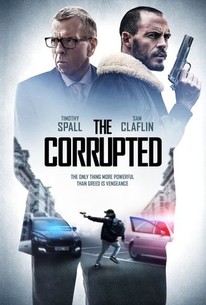
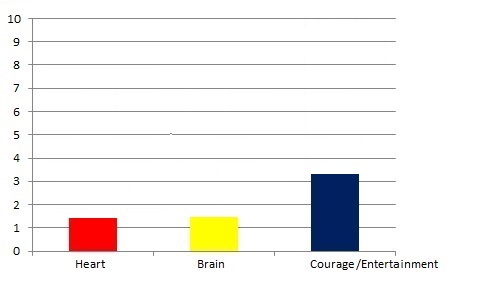 Inherit the Viper 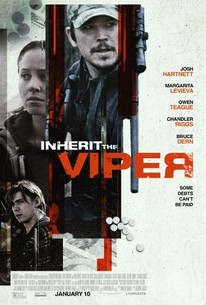 Three siblings put their family's lives on the line while dealing opioids in a small Apppalachian town. Boots Conley (Owen Teague) and his sister, Josie (Margarita Levieva), want to stay in the family business. Kip (Josh Hartnett), the older brother, however, yearns to find a way out of it. Inherit the Viper has a premise that sounds like it could be a gripping, emotionally engrossing crime thriller, but it falls short because of the shallow, dull and pedestrian screenplay by Andrew Crabtree. Boots, Jose and Kip are all interesting characters, especially Kip because he's the one sibling who's undergoing a crisis of conscience. He's the least unlikable character whom the audience can potentially root for. Unfortunately, the screenplay doesn't allow the audience to get to know him enough to care about him as a human being. Yes, he has a wife who's pregnant, but that seems like something tacked-on to add more at stake for him while he's in the dangerous opioid business. There are also too few surprises in the plot and a shortage of comic relief. The grim tone becomes monotonous and, ultimately, tedious and exhausting. On a positive note, the filmmakers do include some gritty violence and provide some atmosphere through the cinematography and the scenery, but that's not enough to invigorate the film. Bruce Dern, who's underused, shows up in a compelling albeit brief scene as a powerful figure in the opioid business whom Kip confronts. Although the running time is only 85 minutes, it feels a little longer because some scenes drag. Inherit the Viper does feel intense, but fails to pack a punch on any level. The filmmakers don't take enough risks thereby making it feel bland and conventional. Uncut Gems is an example of an intense thriller that's more exhilarating and heartfelt even though it's also exhausting. Unlike this forgettable B-movie, that one is an A-movie with an intelligent screenplay that's an immersive, emotional roller coaster ride with some levity and surprises along with better performances. 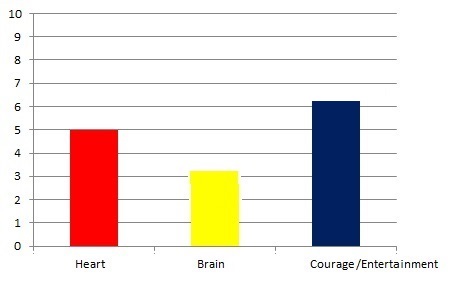 Like a Boss 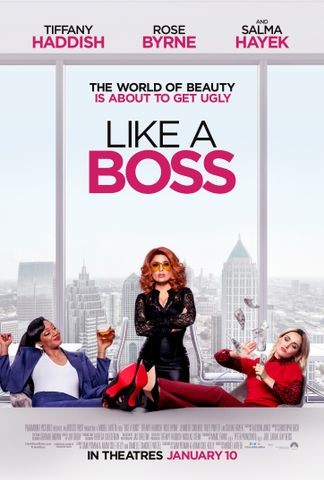 Mel (Rose Byrne) and her best friend, Mia (Tiffany Haddish), co-own a cosmetics company, but they're struggling to stay afloat because of rising debts. When wealthy cosmetics executive, Claire Luna (Salma Hayek), offers to buyout their company leaving them to own 51% of it, they seize the opportunity because it will get them out of debt. The business deal with Luna causes a rift in their friendship that tests their bond and threatens to ruin their careers in cosmetics. Like a Boss has many comedic attempts, but almost all of them fail because the witless screenplay by Sam Pitman and Adam Cole-Kelly tries too hard to be funny with silly slapstick and inane, outrageous jokes that attempt to push the envelope. Lowbrow humor can be done well if it's clever and witty, but in this case it's too juvenile despite the R rating. It seems as though teenagers wrote the characters because all of them caricatures, especially Luna who's over-the-top and more irritating than funny. Watching her swing a golf club to break a drone or smash a vase isn't very funny even on paper. Don't ask about a cringe-inducing dance that she makes when she celebrates the business deal. Haddish's character is essentially a recycled version of her potty-mouthed character in Girls Trip while Jennifer Coolidge is playing the same kind of dumb character she played in Legally Blonde. The only mildly funny scenes are the ones with Barrett (Billy Porter), one of Mel and Mia's employees, however, he breaks a cardinal rule of cinema in one scene when he looks into the camera thereby breaking the fourth wall. If that was part of the screenplay, it still results awkwardness. Unfortunately, the attempts to ground the film in a sliver realism also falls flat and slow down the film, i.e. when Mel and Mia are talking while getting high on a rooftop. It's a contrived way of trying to make audiences take their friendship seriously or to provide some kind of insight about female friendship. Perhaps if the screenplay were campier or had more successfully pushed the envelope without catering to the lower common denominator, it would've at least been a guilty pleasure. When it comes to cinematography, editing, musical score and lighting, everything about Like a Boss makes it feel like a raunchy pilot for a sitcom. Audiences can easily watch this on VOD because nothing will be lost on the small screen. There have been much smarter and funnier movies that went directly to VOD. Why wasn't Like a Boss released straight-to-VOD? Why are there no outtakes after rushed fade-to-black ending? Despite a thankfully brief running time of only 83 minutes, Like a Boss is a witless, tedious, sophomoric and painfully unfunny attempt at comedy. 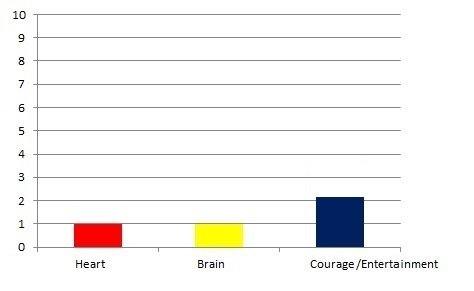 The Sonata  When her wealthy father, Richard Marlowe (Rutger Hauer), a composer, lights himself on fire and jumps to his death, Rose Fisher (Freya Tingley) inherits his mansion where he had resided. Something supernatural might be taking place in the mansion. She soon finds a key that unlocks a drawer containing a sonata that has bizarre symbols. With the help of her manager and agent, Charles Vernais (Simon Abkarian), she deciphers the symbols which reveal dark secrets from the mansions past and might have something to do with her father's suicide. The Sonata sounds like it could be a creepy gothic horror film, but the screenplay by writer/director Andrew Desmond and Arthur Morin doesn't have enough palpable scares nor suspense as its plot meanders. There's nothing onscreen to hook audiences into the story. Unfortunately, both the villain and the heroine are very boring characters. Rose is just there to move the plot along and lacks a distinct personality. The relationship between Rose and her father remains under-explored, and the mystery behind the mansion's evil entity becomes less and less engaging as the film progresses. The villain, when he does show up eventually, isn't particularly frightening or memorable like the monster in Pan's Labyrinth. This is the kind of movie that you can hear the screenwriters typing on the keyboard while you're watching it. Also, the musical score gets used too often and feels overbearing which makes the audience feel like the filmmakers were hitting them over the head without trusting their emotions enough. Even horror films ought to have some realism, but not a single scene here rings true. Sometimes the lack of emotional depth in a screenplay can be forgiven if the performances compensate for that, but in this case none of the performances rise to the occasion. Perhaps all of the actors didn't have enough strong material to rise above it. Moreover The editing more often than feels choppy and the pacing uneven, although it's not as highly incompetent as the editing/pacing in the recent remake The Grudge. The only saving grace in The Sonata is the production design. The mansion's interior and exterior look foreboding and eerie which adds a little bit of atmosphere, so the film's style becomes its substance essentially. It's hard to avoid imagining what Guillermo Del Toro could've done with a similar premise much like he did in Pan's Labyrinth or Crimson Peak. The Sonata isn't as painfully dull as The Little Stranger, but it's more on par with Winchester as an underwhelming gothic horror film that's too low on palpable scares and suspense. 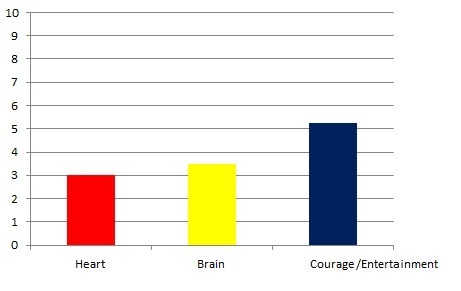 Three Christs 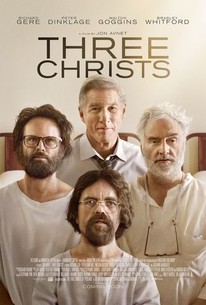
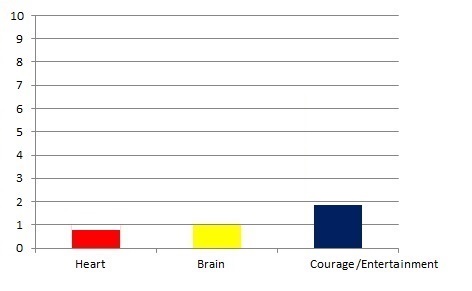 Underwater  Norah (Kristen Stewart), a mechanical engineer, works as part of a team tasked with drilling into the bottom of the ocean in an underwater laboratory. The drilling causes an earthquake, destroys the laboratory which takes in water that nearly drowns Norah and her coworkers, Emily (Jessica Henwick), Smith (John Gallagher Jr.), Rodrigo (Mamoudou Athie), Paul (T.J. Miller), and the captain (Vincent Cassel). Underwater benefits from being a lean action thriller that wastes no time getting to the meat of the story within the first few minutes. There's very little padding and no subplots, although Emily and Smith are boyfriend and girlfriend. Director William Eubank eschews a lengthy first act as well as any backstory, though, which makes it hard to care about any of the characters. That kind of minimalism works in 1917 because there's just enough dialogue and raw performances along with nuances to add substance and even some character depth. It also has visual poetry to boot. This film, though, is shallow from start to finish, and the characters are essentially forgettable, empty vessels. Stewart lacks the acting chops to breathe life into her role, and the voice-over speech that she makes that bookends the film is a failed attempted of the screenwriters to add much-needed substance. The characters are merely pawns meant to move the plot forward. The cinematography looks slick with impressive CGI and sound design, but it's often too loud and the action quickly becomes repetitive. Sometimes style can become substance, like in 1917. That can't be said about the style in Underwater, though. When it comes to plot, there's only one surprise which won't be spoiled here, but the way that the surprise is handled by the filmmakers is unimaginative and uninspired. There are a few far superior films to compare it too within the same genre, so Underwater pales by comparison. The director seems just as hurried to wrap the film up with its rushed ending as he was to cut right to the action in the beginning. The best thing about it is that it's only 95 minutes and doesn't overstay its welcome, so it's exhausting without being painfully exhausting. Essentially, it's an overproduced B-movie drowning in shallowness, tedium and lack of imagination. 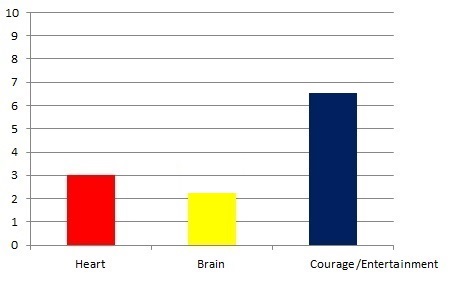 Main Page Alphabetical Menu Chronological Menu ______________________________________________________ |
The NYC Movie Guru
themovieguru101@yahoo.com
Privacy Policy